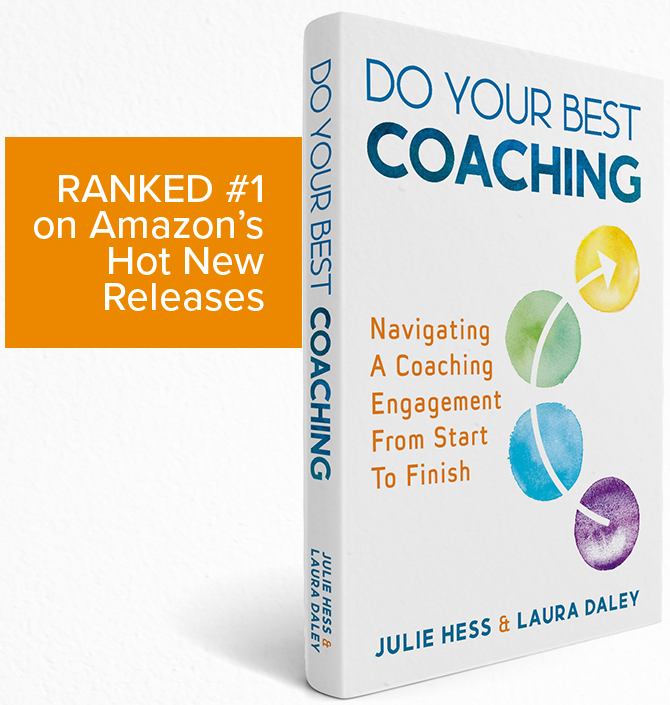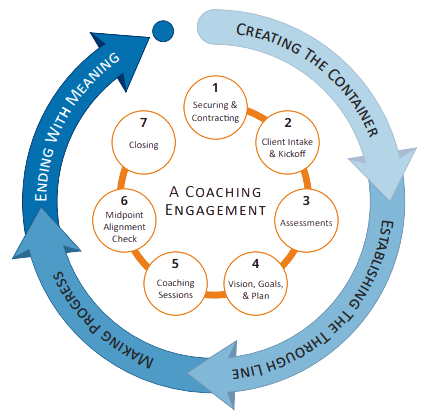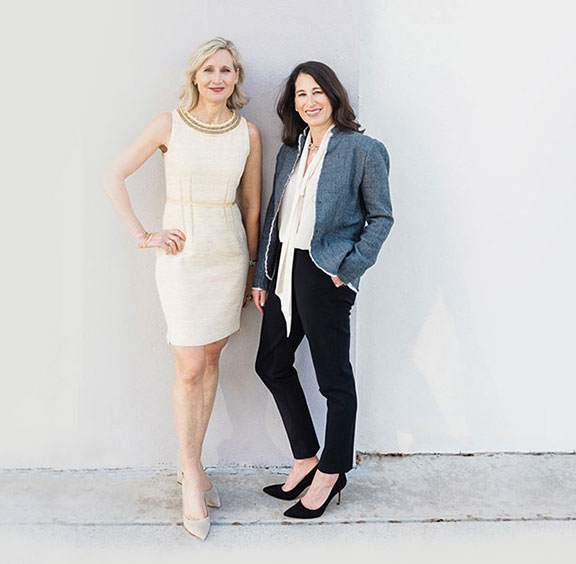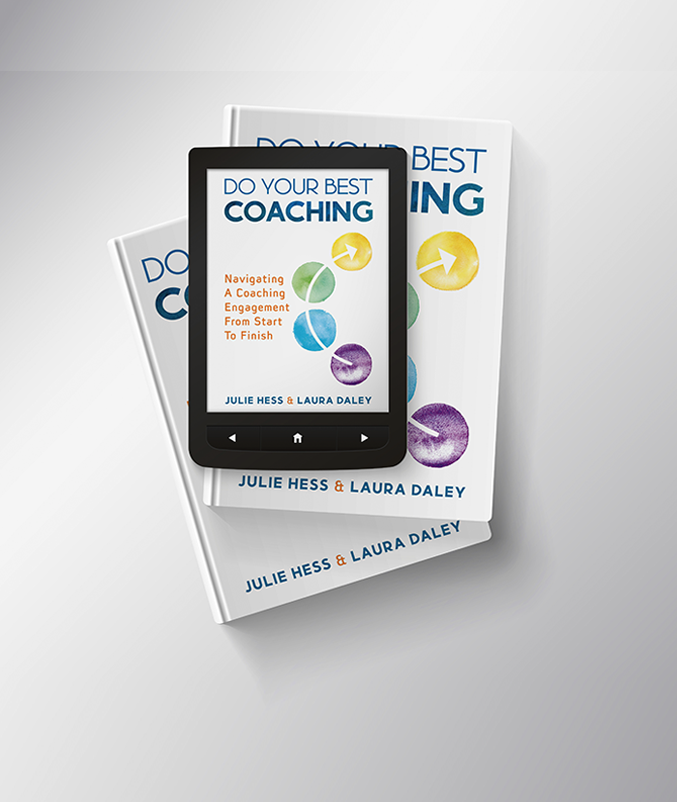A terrific guide for all coaches! Full of useful tips and practices that are brought to life with real coaching stories we can all relate to and learn from. Do Your Best Coaching will quickly become a critical resource for coaches new and seasoned!
— Dr. Marshall Goldsmith, Executive
Coach and NYT bestselling author
Do Your Best Coaching, is an important contribution to the field of coaching. If you aspire to be a great coach, this book is a must read. It provides a very thorough and practical guide to successfully navigating every aspect of a coaching engagement.
— Bob Anderson, Founder, Leadership Circle,
Co-Author Mastering Leadership and Scaling Leadership
My students often have questions about how to manage coaching relationships. I now have the answers! Do Your Best Coaching is a guide for coaches to manage everything from securing contracts to graciously ending relationships… and handling the sticky situations in between.
— Dr. Marcia Reynolds, MCC,
author of Coach the Person, Not the Problem
Do Your Best Coaching is essential for executive coaches. It offers a smart, thoughtful approach to managing engagements. The book also captures the experience of internal leadership coaches and provides applicable insights that are often missing from coaching books.
— DeAnne Aussem: Managing Director,
Founder of PwC's Leadership Coaching CoE
Do Your Best Coaching is a great, useful addition to the field of coaching for practitioners of all levels! Utilizing their own coaching experiences over many years, Hess and Daley offer coaches ways to bring heightened intentionality and presence to their work. New coaches will find practical approaches on how to cultivate successful coaching engagements, while experienced coaches will find practical tips and innovative ways to refresh their coaching approach
— Pam McLean
Founder and Chief Knowledge Officer
Authors Julie Hess and Laura Daley bring their presence and truth as they share their experiences, and distilled learnings, in service of offering an ‘Intentional Engagement Framework’ to support and inspire coaches, at any level, to bring deep value to their work. This is a book that is sturdy in its practicality while grand in its call for the devotion of service that our coaching clients hope and deserve to find.
— Dorothy E. Siminovitch
Director of Training for Gestalt Coaching Program-Istanbul/Toronto

-
WHATS IN THE BOOK?
- DO YOUR BEST COACHING WORKBOOK
Introducing the Intentional Engagement Framework to mindfully and consistently attend to the processes and tools that support a healthy coaching engagement. Overview of the four phases of the framework: 1. Creating the Container 2. Establishing the Through Line 3. Making Progress and 4. Ending With Meaning.
How to start a coaching engagement intentionally from the first inquiry call, bringing your best self to chemistry calls and creating a well-structured Statement of Work.
Creating the container for coaching by helping your client reflect and explore what brings them to coaching. Aligning on coaching objectives and how you will work together and ensuring alignment with your client’s sponsor.
How to select, implement and debrief assessments throughout a coaching engagement to help your client increase self-awareness. Review of the different types of assessments, when to assess and how to support your client through the process.
Comparison of 360° approaches: interview-based, survey-based or a hybrid. Guiding principles to implement and debrief a coaching 360° that offers insightful data and builds your client’s self-awareness.
Why creating a vision for the future is critical for your client’s success. Bringing together the client’s vision with the strengths and opportunities surfaced in the assessment process to yield insights and desired changes. Developing a coaching plan to support your client’s development and serve as the through line for your work together.
Being at your best for coaching. Ensuring that you have the time and space to prepare and be fully present for a client. How to prepare prior to a session and reflect and capture themes after a coaching session. Practical considerations such as how many clients to take on and how to thoughtfully structure your working time to support your best coaching.
Regularly aligning with your client. Informally checking in on the coaching experience throughout the engagement, and using a formal mid-engagement review to accelerate a client’s progress. When and how to align with sponsors during an engagement.
Closing a coaching engagement in a manner that honors the work and sets up the client for success post-coaching. Using progress feedback, reflective practices and an ongoing development plan to finish with the client; a meaningful sponsor wrap-up meeting; and your own closing practices.
How your presence impacts your clients and your work. Examples, resources and ways to cultivate your presence and bring forward your best coaching.
Why on-going development is important for coaches and how to create an ongoing development strategy for yourself. Discussion of development opportunities including: self development, coaching capabilities, coaching tools & frameworks. The value of coaching supervision and of learning in community.
How to use this book to navigate Sticky Situations. ICF and EMCC Competencies Chapter by Chapter.
HERE’S THE WHAT’S IN THE BOOK:
Each chapter begins with a process graphic that illustrates the steps for you,
your client, and the sponsor. We then dive into the following:
- The key outcomes for this part of the process
- Checklists organized to capture the flow and detail of activities
- Tools, templates, and examples to support these activities
- Sticky situations related to this part of the engagement, and
- A place for you to reflect and integrate, capturing your insights and next steps.
HERE’S THE WHAT’S IN THE BOOK:
Each chapter begins with a process graphic that illustrates the steps for you, your client, and the sponsor. We then dive into the following:
- The key outcomes for this part of the process
- Checklists organized to capture the flow and detail of activities
- Tools, templates, and examples to support these activities
- Sticky situations related to this part of the engagement, and
- A place for you to reflect and integrate, capturing your insights and next steps.
ABOUT THE INTENTIONAL ENGAGEMENT FRAMEWORK
The Intentional Engagement Framework provides leadership coaches with an approach to develop a healthy coaching engagement from start to finish. Readers will learn how to create the container necessary to build a meaningful coaching relationship and do the deeply connected work that leads to great client outcomes, while navigating the sticky situations that can sometimes arise.
The Intentional Engagement Framework offers a way to mindfully and consistently attend to the processes and tools that support a healthy coaching engagement across the phases of the engagement:
- PHASE I: Creating the Container
- PHASE 2: Establishing the Through Line
- PHASE 3: Making Progress and
- PHASE 4: Ending with Meaning
The book explores each phase in detail, providing field-tested tools, considerations and practices for each phase.

An Inside Look At DYBC Content

Real Stories
Slow Down to Speed Up
Perveen and Anna had been a great fit from the first minutes of their chemistry call and spent much of the call discussing Annas goals for coaching and how overwhelmed she felt given her workload and family responsibilities. She admitted she wasn’t sure how shed be able to make time for coaching and asked Perveen not to assign homework outside of the coaching conversations. Empathizing with her client, Perveen agreed, and proceeded without doing her usual intake process, substituting a quick chat to collect basic demographics. By the third conversation, it was clear that Perveen had done her client a disservice by skipping the self-reflection typically included in intake; she lacked important context and insight about Anna, and Anna resisted providing it during their calls, preferring to be action-oriented rather than “navel-gazing.” They missed seeing a couple of patterns and mindsets that undermined Annas intentions to change, so Anna made slower progress than she wanted.
Perveen took this lesson to heart and set an intention to explain to each new client the importance of the intake for setting the proper foundation for coaching work. ‘The information it provides, and especially the self-reflection it engenders, helps clients achieve their goals more quickly and completely.

Top Tips
TOP TIP
One of the most important things the coach can do is support the client and sponsor in agreeing on how they will work together to create accountability for executing the Ongoing Development Plan and ensure the client’s development doesn’t always take a back seat to business issues, a common challenge we observe.

PROVEN TOOLS
PROVEN TOOLS
| GOALS (Changes to increase my effectiveness) | BEHAVIORS AND ACTIONS (Things to start or stop) | IMPACT OF ACHIEVING GOAL | SUCCESS MARKERS (How to know I’m making progress) |
|---|---|---|---|
| 1. Connect with my audience with impact and efficiency | Take time to prepare: consider audience, write out key messages, prepare for likely questions Deliver the message: | Greater influence on business decisions and strategic plans Reputation as a clear communicator and valued collaborator | Peer and manager feedback Quick self-assessments after significant meetings and/or coach debriefs Invited to more meetings on critical topics |
| 2. Create time for… |
PRAISE FOR DO YOUR BEST COACHING
“Do Your Best Coaching is a great, useful addition to the field of coaching for practitioners of all levels! Utilizing their own coaching experiences over many years, Hess and Daley offer coaches ways to bring heightened intentionality and presence to their work. New coaches will find practical approaches on how to cultivate successful coaching engagements, while experienced coaches will find practical tips and innovative ways to refresh their coaching approach.”
– Pam McLean, Pam McLean, PhD, MCC, Founder and Chief Knowledge Officer, Hudson Institute of Coaching, Author of Self as Coach, Self as Leader: Developing the Best in You to Develop the Best in Others.
“In Do Your Best Coaching, Hess and Daley make an important contribution to the field of coaching. If you aspire to be a great coach, this book is a must- read. It provides a very thorough and practical guide to successfully navigating every aspect of a coaching engagement. Read it mindfully and take the opportunity to push pause while you reflect on how you are engaging your clients and how you can, with increased rigor, intentionality, and deep presence, add more value to your clients.”
– Bob Anderson, Founder, The Leadership Circle, Co-author of Mastering Leadership and Scaling Leadership
“A terrific guide for all coaches! Full of useful tips and practices that are brought to life with real coaching stories we can all relate to and learn from. Well-written and researched, Do Your Best Coaching will quickly become a critical resource for coaches new and seasoned!”
– Dr. Marshall Goldsmith, ThinkersSO #1 Executive Coach and New York Times bestselling author of Triggers, Mojo, and What Got You Here Won’t Get You There
“Authors Julie Hess and Laura Daley bring their presence and truth as they share their experiences, and distilled learnings, in service of offering an ‘Intentional Engagement Framework’ to support and inspire coaches, at any level, to bring deep value to their work. This is a book that is sturdy in its practicality while grand in its call for the devotion of service that our coaching clients hope and deserve to find.”
– Dorothy E. Siminovitch, PhD, MCC, Author, Coach, Speaker, Director of Training for Gestalt Coaching Program-Istanbul/Toronto
“I love teaching coaching, but my students often have questions about how to manage the coaching relationships. I now have the answers! Do Your Best Coaching is a guide for coaches to manage everything from securing contracts to graciously ending relationships … and handling the sticky situations in-between. Full of examples, tools, checklists, and relatable stories, it is an essential resource you will continue to refer to throughout your years of coaching.”
– Dr. Marcia Reynolds, MCC, Author of Coach the Person, Not the Problem
“Do Your Best Coaching is essential for executive coaches. It offers a smart, thoughtful approach to managing engagements brought to life through stories, practices, and examples. It also captures the experience of internal leadership coaches and provides them with applicable insights and considerations that are often missing from coaching books.”
– DeAnne Aussem, Managing Director, Well- being Leader and Founder of PwC’s Leadership Coaching Center of Excellence
About The Authors
Laura is an executive coach, leadership advisor and strategy consultant with more than 25 years of experience. She holds an MBA from UCLA Anderson, a BA from Cornell University, and a PCC from the ICF, having trained at the Hudson Institute. Laura coaches executives, leadership teams and coaches-in-training

Julie has worked with clients to achieve breakthrough results for more than 25 years. Today she divides her time between her executive coaching practice and supporting the development of other coaches as a coach supervisor and educator. She holds an MBA from the Kellogg Graduate School of Business and a PCC from the ICF, having trained at the Hudson Institute. Julie is also a CSA-accredited coach supervisor.
UPCOMING EVENTS
12 October
ASSOCIATION FOR TALENT DEVELOPMENT (ATD) & WEBINAR
Selecting & Optimizing Coaching Solutions for Engagement & Retention
26 October
THE WORLD BUSINESS & EXECUTIVE COACH SUMMIT (WBECS)
Increase Your Coaching Impact with Intentional Engagement








